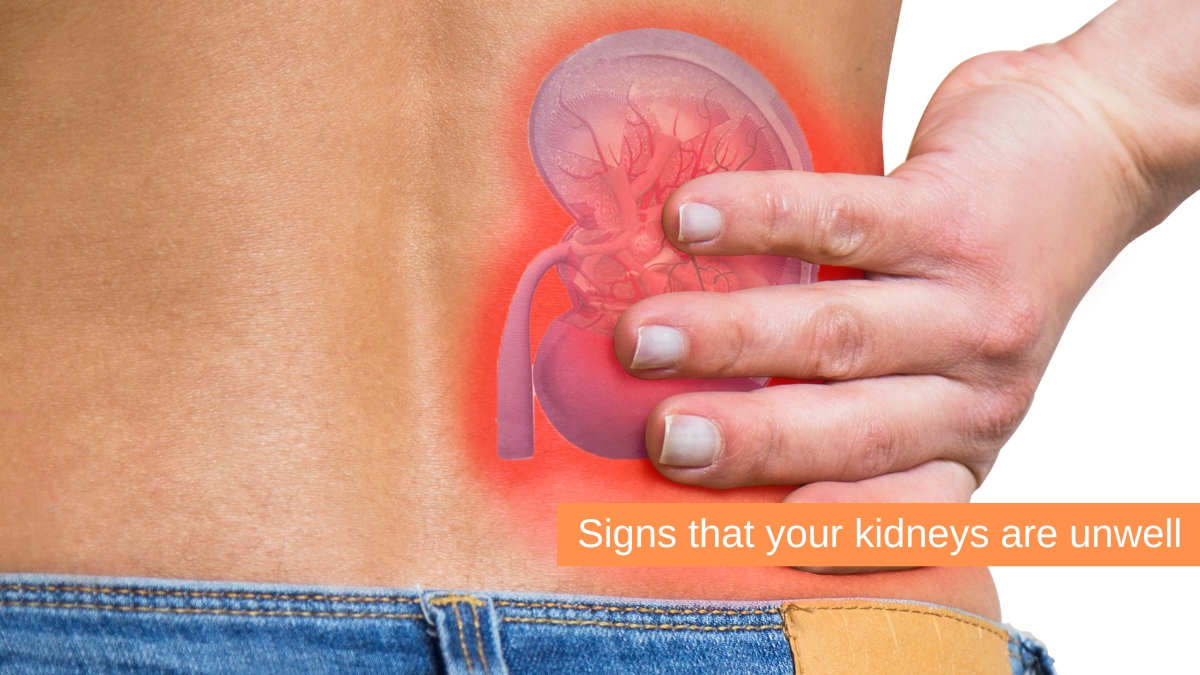
Signs That Your Kidneys Are Unwell
They say that ignorance is bliss. And they keep falling into the loop of toxic escapism that fools them into believing that all is well despite subtle signs that their bodies keep sending out. Doctors say that most people tend to miss out on the earlier signs of a disease and end up losing the battle when the situation gets out of hand.
We, on the other hand, strongly believe that knowledge is power. It should be used to educate and empower ourselves, and use the information to help us live happier and healthier lives. The things we worry about when we don’t know the facts can be worse than what may actually be happening.
Our kidneys are important organs, and learning about them is a way to feel more in control of our lives and health.
Why are kidneys important?
Kidneys are rightly called the chemical balancing powerhouses of the body. This is what they do:
- They help flush out toxins and waste from the body, along with all the additional water. They throw all these substances out of the body in the form of urine.
- Our body needs just the right amount of minerals in the muscles, blood vessels, bones, and nerves. Kidneys keep an eye on the mineral imbalance and push all the extra ones to the bladder to be thrown out.
- Along with minerals, the body needs to balance the salts in the blood, which the kidneys help to do, and additionally, they produce an enzyme called renin that helps regulate blood pressure.
- Kidneys send out messages to the bone marrow through a hormone called erythropoietin if there are fewer red blood cells in the body.
- The Acid and Base balance in the body is also maintained by the kidneys by working together with the lungs.
Signs that the kidneys need attention
With very vital roles to play, kidneys must be well looked after, and signs that they aren’t functioning optimally cannot be ignored. After discussing in depth with experts, we have listed 10 signs that may indicate that our kidneys are unwell.
- In the case where the kidneys are involved, tiredness, fatigue, and loss of energy may be some of the earliest symptoms, and it is extremely difficult to concentrate on doing things. This occurs when toxins and other waste build up in the body, and the kidneys are not disposing of them as they are expected to, or because they are not assisting in the production of red blood cells.
- Failure of the kidneys to eliminate toxins in the blood leads to sleep disorders such as insomnia and sleep apnea (excessive snoring).
- Itchy and dry skin is also an indication of unhealthy kidneys, due to mineral and nutrient imbalance.
- Urinating frequently and particularly at night? That may indicate that the filters in the kidneys are broken and resulting in the need to pass urine more often.
- When the kidneys throw out waste from the body, they are designed to retain the blood cells. However, if the filters in the kidney are damaged, they cannot hold the red blood cells, causing them to leak in the urine and making it appear reddish brown in colour.
- There are times when the urine appears foamy. This happens due to the presence of proteins that create bubbles in the urine. Again, the reason is compromised filters.
- If there is puffiness around the eyes, it’s time to give the kidneys some thought. The puffiness is the result of too much protein being thrown out in the urine due to faulty filters in the kidneys.
- Swollen ankles and feet are again due to too much salt retention in the body, due to poor filtration in the kidneys.
- When toxins build up in the blood, the most obvious symptom is loss of appetite. So if a person doesn’t feel hungry, it’s probably unwell kidneys.
- Muscle cramps are yet another subtle sign that the kidneys have impaired functioning. The reason is low calcium levels and uncontrolled phosphorus levels.
What causes a kidney filter malfunction
Damaged kidney filters can be triggered by many risk factors.
The most common ones are:
• Diabetes.
• Hypertension.
• Cancer, AIDS, or Hepatitis C.
• Congestive heart failure.
• Blockages in the kidney blood vessels or urethras due to kidney stones, birth defects, blood clots, or scars from previous kidney infections.
• Excessive use of painkillers or antibiotics.
• Kidney inflammation.
• Recreational drug overuse.
• Allergic reaction caused by X-ray dyes that hamper the blood flow to the kidneys.
• Trauma or accident.
• Sickle cell anemia.
Here’s the catch. The signs of kidney damage are very deceptive and stealthily creep up without prior warning. The key is to stay vigilant and informed with the right knowledge and take proper steps to heal the two little but extremely crucial organs of the body.
Related
BY: Sukino
COMMENTS: No Comments
